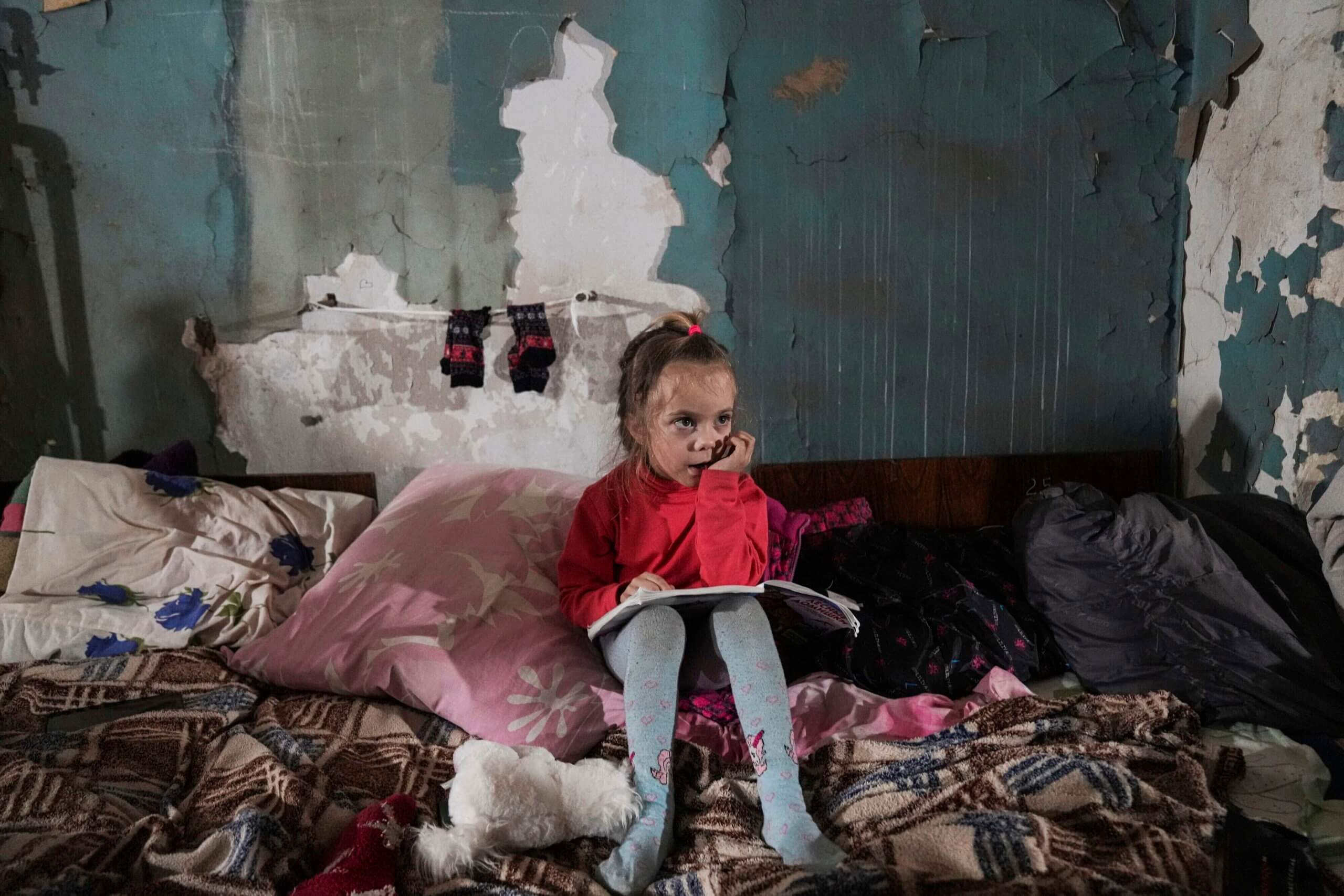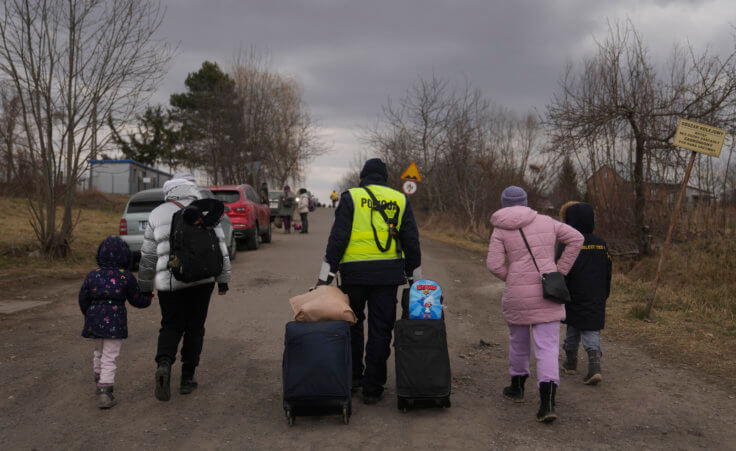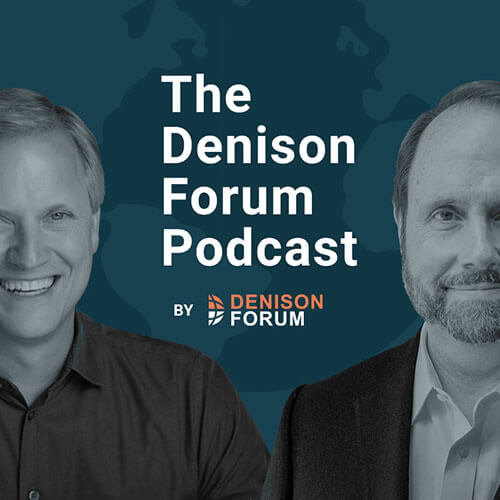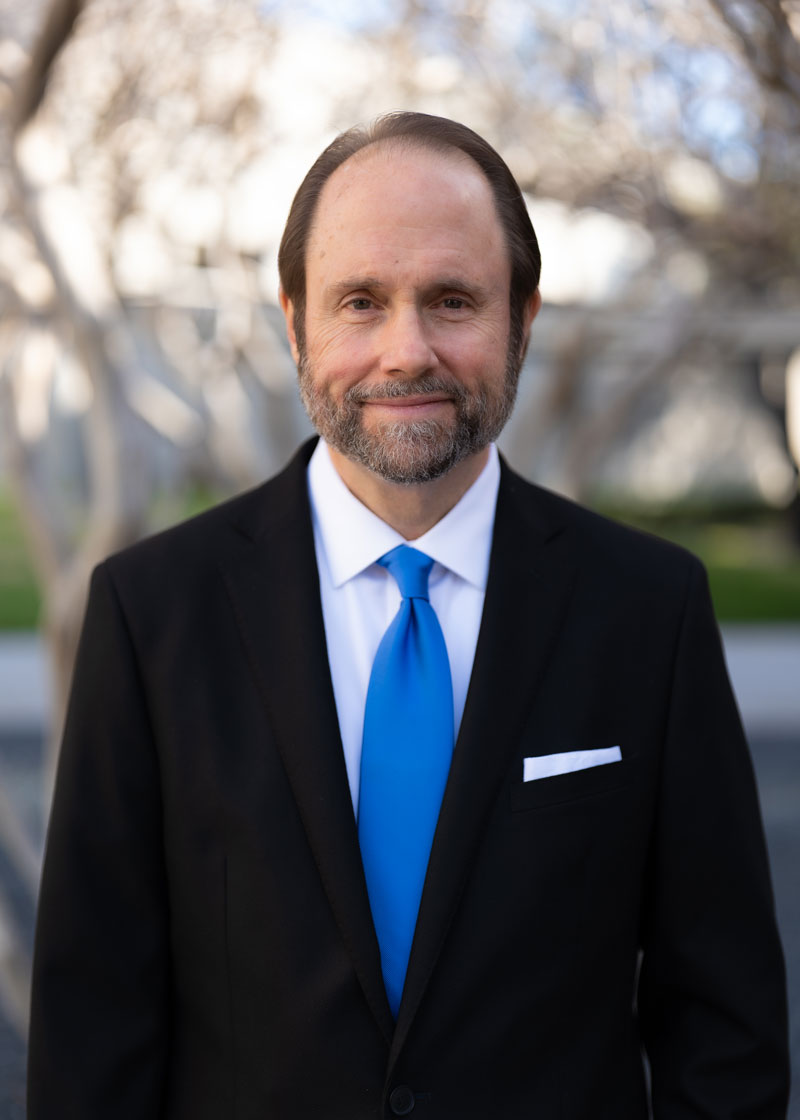My granddaughter’s favorite song is “Let It Go” from the movie Frozen. When I watched this little girl sing the song in a Ukrainian shelter, I was nearly moved to tears. She is likely someone’s granddaughter.
What if she were mine? What if she were yours?
Russia’s illegal and immoral invasion of Ukraine is generating some of the most moving stories that I have ever seen. For example, Ukrainian President Volodymyr Zelensky gave the first speech by a foreign leader ever to Britain’s House of Commons Tuesday, echoing Winston Churchill’s famous words to the same chamber at the dawn of World War II: “We will fight till the end, at sea, in the air. We will fight in the forests, in the fields, on the shores, in the streets.”
The whereabouts of his wife, First Lady Olena Zelenska, and their two children are secret since Ukraine believes they are being targeted by Russia for assassination. However, she has played an active role on social media, shining a spotlight on what she calls “the mass murder of Ukrainian civilians.”
Then there are the children who are such innocent victims of Vladimir Putin’s escalating atrocities.
At least three people were killed and seventeen were wounded when a Russian airstrike bombed a maternity hospital yesterday. One million children have been forced to flee Ukraine, leaving behind their lives and their friends. Polio is even making a comeback as the war has halted vaccination efforts. Russian bombardment has killed so many people in the Ukrainian city of Mariupol that workers are forced to bury civilians and soldiers in a mass grave.
And US intelligence leaders are warning that Putin is likely to escalate attacks even further in the coming days.
Only 4 percent of Russians blame Russia for the invasion
While the world increasingly sees Putin and Russia as an international pariah, the story is far different on the Russian side.
The New York Times reports this morning that top diplomats from Ukraine and Russia failed to reach an agreement today to calm the fighting in Ukraine or even to ease the worsening humanitarian crisis. Note this statement by Russian foreign minister Sergey V. Lavrov: “We are not planning to attack other countries. We didn’t attack Ukraine, either.” He was repeating Russian claims that his country was forced to conduct a “special military operation” in Ukraine to protect its own security.
Many in Russia believe him.
Putin’s approval rating soared as Russia prepared to attack Ukraine. While thousands of protesters have demonstrated against the invasion, only 4 percent of Russians blame the conflict on Russia. More than two-thirds blame it on the US, NATO, or Ukraine.
The vast majority who do not blame Russia for the invasion is unlikely to blame Putin for Western sanctions enacted in response to the invasion. In fact, such measures may harden their opinion against the West and reinforce Putin’s narrative that he is defending his people from Western aggression. This does not mean that the West should not do all we can to defend and support Ukraine, of course. But it does illustrate the fact that nations have narratives.
Even the way the two sides describe the country being invaded demonstrates this reality. Russians refer to it as “the Ukraine,” with the definite article indicating that it is a region rather than an independent entity. Ukrainians refer to their homeland as “Ukraine” without the definite article to reinforce its independent status. Americans follow this custom when we speak of “the Bluegrass region” (with the definite article) of “Kentucky” (without the definite article).
In reading British scholar Geoffrey Hosking’s Russian History this week, I found context that further clarifies Russia’s narrative of this conflict. Hosking reports, “Whatever else they may have wanted, Russians have always longed for security from terrifying and murderous assaults across the flat open frontiers to east and west.”
This need “motivated the creation of the first Rus” state in the ninth century. It explains their support for Ivan IV (1530–84), the first “Tsar” (a form of the Roman imperial title Caesar), and later for Peter the Great (ruled 1682–1725), who built Russia into an empire.
Rebuilding this empire is Vladimir Putin’s expressed and determined purpose. To the degree that Russians see his invasion of Ukraine as necessary in defending them from alleged threats from the West and restoring their national pride and power, they are supporting his invasion.
“It is good for me that I was afflicted”
So, each side of the war in Ukraine believes that its side is “moral.” Notice what is missing in this debate: a question as to whether objective morality exists.
As I have discussed often over the years (and in two chapters of The Coming Tsunami), it is conventional wisdom in our postmodern culture that all truth claims are personal and subjective. But when children are hiding in shelters and bombs are falling on a children’s hospital, such relativism is one of the first casualties.
Suffering has a way of clarifying our priorities and exposing our fallacies. The psalmist spoke for many when he admitted to God, “Before I was afflicted I went astray, but now I keep your word” (Psalm 119:67). He could then observe, “It is good for me that I was afflicted, that I might learn your statutes” (v. 71).
I am praying that postmodern skeptics learn from this horrific conflict the absolute fact of absolute truth, the moral imperative of embracing and defending objective morality. I am praying for Christians to exhibit the transformative power of living by such morality as revealed in the word of God (Hebrews 4:12) and empowered by the Spirit of God (cf. Galatians 5:22–23).
And I am praying that such Spirit-empowered integrity will begin with me.
“God will make you fit”
The reality of suffering and sin forces us to admit the reality of our finitude and our consequent need for divine grace. Oswald Chambers noted in a devotional that to be united with Jesus Christ, “We must relinquish all pretense of being anything, all claim of being worthy of God’s consideration.”
He explains: “There will have to be the relinquishing of my claim to my right to myself in every phase. . . . When a man really sees himself as the Lord sees him, it is not the abominable sins of the flesh that shock him, but the awful nature of the pride of his own heart against Jesus Christ.”
He concludes: “If you are up against the question of relinquishing, go through the crisis, relinquish all, and God will make you fit for all that he requires of you.”
Do you see yourself as the Lord sees you today?










